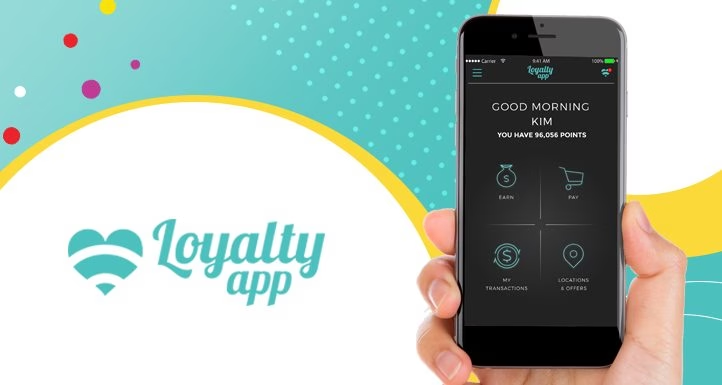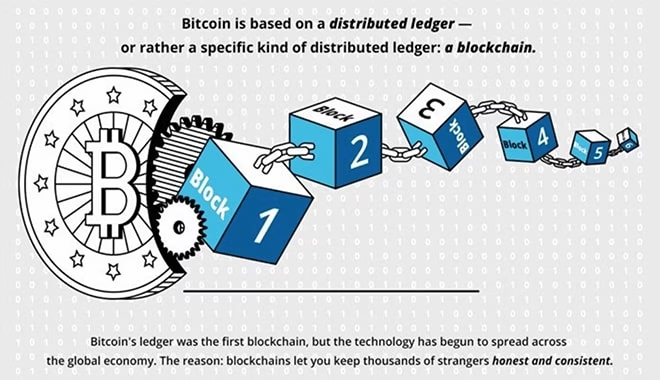
How to Make Blockchain Rewards Program App
Wondering how you can make your rewards program app using blockchain technology?
You are on the right track to leapfrogging ahead of your competition. In this article, we will answer the most popular questions about Blockchain rewards program app development.
Let's get started!
How can blockchain help with building loyalty rewards programs?

Blockchain, by its very design, boosts transparency, efficiency, and security. If you're wondering whether blockchain technology can be hacked, read this blog post. The technology achieves this due to its distinct characteristics, which are as follows:
- Blockchain networks are decentralized, "Peer-to-Peer" (P2P) networks, and public blockchains are open to anyone. Permissioned or private blockchains allow only trusted parties to join.
- Every computer on the network, i.e., a “node”, has the entire transaction history, and effectively acts as a complete ledger. Hackers can’t shut this network down by attacking one server. Therefore, we call it “Distributed Ledger Technology” (DLT).
- Blockchain uses decentralization, digital signatures, data encryption, and consensus algorithms to protect the data against tampering.
- Blockchain smart contracts are open-source pieces of code that execute autonomously. Moreover, their execution is irreversible. They improve transparent transactions and automate contract administration.
I have explained these characteristics in “How to build your own blockchain using Node.js." The focus on transparency, efficiency, and security put the technology in a unique position to improve customer loyalty programs.

Get a complimentary discovery call and a free ballpark estimate for your project
Trusted by 100x of startups and companies like
The advantages of using blockchain in loyalty programs
There are various advantages of using a blockchain rewards program, and these are as follows:
- Loyalty points as crypto tokens: Blockchain has introduced cryptographic tokens, and these can have wide implications for the global economy. Businesses can offer crypto tokens as loyalty points, and consumers can take advantage of these irrevocable stores of value.
- Improved transparency: Consumers receiving crypto tokens as loyalty points can see a clear audit trail of the transaction. Businesses can’t suddenly take these loyalty points back by citing a change of rules.
- Clarity about the loyalty program rules: With the blockchain rewards program, businesses need to use smart contracts to set the rules of their rewards programs. These are transparent, and no one can tamper with them after their deployment. The rules of the blockchain rewards program are always open for everyone to review.
- Cost reduction: Businesses using blockchain to run their loyalty program take advantage of the immutable distributed ledger, thereby reducing costs to maintain customer data within loyalty program budgets.
- Eliminate fraud: Tamper-proof loyalty records and immutable smart contracts can eliminate fraudulent transactions.
- Flexibility: With crypto tokens, consumers can redeem a portion of their reward points. This increases flexibility and provides a better customer experience. Consumers can also sell their crypto tokens for other digital currencies like Bitcoin or Ether, or they can sell them for fiat currencies through their digital wallet. This ensures customer satisfaction while using a loyalty app.
Read more about these advantages in “6 cases for blockchain loyalty tokens”.
Examples of blockchain-powered loyalty apps and platforms
Let’s review a few examples of blockchain rewards programs and loyalty apps, e.g.:
1. LoyalCoin
A blockchain-powered loyalty providers app, LoyalCoin has a crypto token with the same name, as well as a crypto wallet. It’s a single token system for all customer loyalty rewards points, which makes it easier for consumers. LoyalCoin (LYL) is an ERC20 token.
You can use this token for other purposes too, and you are not confined to just one store. A mobile wallet helps consumers maintain their points securely. One can convert LoyalCoins to Bitcoin, Ether, or fiat currencies.
2. Loyyal
Loyyal is a loyalty program platform, and it’s based on blockchain. This is not just a blockchain rewards program app, rather it has a proprietary blockchain and its own smart contracts. Businesses can set up their loyalty programs on Loyyal and get several advantages, e.g.:
- They can extend their partner network.
- Businesses can expand their marketing capabilities, provide personalized offers, run promotion campaigns, give promotions to loyal customers, etc.
- They can monitor the effectiveness and efficiency of their loyalty programs through metrics like customer retention.
- Loyyal offers API access to its platform, therefore, businesses can use it easily.
How to create a blockchain rewards program app
I will now explain the steps to make your blockchain rewards program app more secure using blockchain, which are as follows:
1. Determine the project scope
I recommend the following project scope for your customer's loyalty programs app:
- Design a user-friendly UI, where you offer features like the ease of sign-up, the display of offers/merchant/stores, delivering personalized offers, integration of various offers/merchants, etc. You can read more about the required features in “Features of a great loyalty app user interface”.
- Securing an app with a blockchain requires a “Decentralized app” (DApp), which is a web app running on a decentralized blockchain. Include this in the scope statement.
- The app should feature a crypto token. I recommend that you create an Ethereum-based ERC20 token since all popular crypto wallets work with this standard. Read "ERC20 token standard” for more information.
2. Choose a development approach
A practical development approach for this project would consist of the following:
- Design and develop the UI as you would for any web app.
- Develop a DApp, which is a web app where the front-end can be in any language, however, the backend must consist of smart contracts. DApps need a crypto token, and no user should control a majority of the tokens. Running on a decentralized blockchain, DApps store data on a blockchain, following cryptographic standards.
- Use Ethereum as the platform for developing this DApp. Ethereum is the most popular public blockchain platform for developing DApps and smart contracts, and I have described it in “Best blockchain network hosts.”.
3. Form a development team
You need the following roles in the project team:
- Business analysts;
- UI designers;
- Web developers for the front-end;
- Ethereum blockchain developers with Solidity skills;
- Testers;
- A project manager (PM).
Note that Ethereum blockchain development skills are niche. If your team needs guidance, they can check out the following training courses:
- “Ethereum and Solidity: The complete developer's guide”;
- “Ethereum: Decentralized application design & development”.
I suggest that you keep an important consideration in mind. You can surely hire inexperienced blockchain developers and train them to execute your project. However, remember that this is a risky approach!
Securing a loyalty app using blockchain can be a complex project, and you need experienced developers. Finding experienced blockchain programmers can be hard, though.
Need help hiring such developers? We at DevTeam.Space can help you, and you can read “How to find a good software developer” to judge our blockchain development capabilities.
Hire expert developers for your next project
1,200 top developers
us since 2016
4. Create an Ethereum account
You can proceed with the UI design and development, and this process is the same as in web app development. In parallel, you need to start the blockchain DApp development.
You are developing an Ethereum DApp using the “Ethereum Virtual Machine” (EVM), including smart contracts written in Solidity. Deploying and running this app requires you to pay the necessary fees. While that step comes at the time of deployment, you need to create an Ethereum “External Owner Account” (EOA).
You can use a user-friendly wallet named eth-lightwallet for this. Download and install it, subsequently, you can set up your public and private keys easily. Remember to secure your private key.
5. Prepare to make your DApp scalable
Ethereum is a popular public blockchain network offering excellent decentralized security, however, at the time of writing this, it doesn't scale well. All nodes need to participate in transaction validation since Ethereum uses the "Proof of Work" (POW) consensus algorithm. You can learn about "POW" in "Proof of work vs proof of stake comparison”.
I recommend the following workaround:
- Use the “Software Development Kits” (SDKs) offered by Loom Network, and create your DApp on its own application-specific sidechain.
- These side chains are called "DAppChains", and you can use a consensus algorithm like "Proof of Stake" (PoS) on it. This will help in achieving scale.
You can read “How to scale an Ethereum Dapp” to learn about this.
6. Install the development tools
Your team needs the following tools for this project:
- testrpc: This is a blockchain client, and it has a “Command Line Interface” (CLI) improving the ease of use. You can use these instructions to install and configure it.
- js: You need an API solution to communicate with the Ethereum blockchain network, and Web3.js has an excellent JavaScript API for this. Please read this guide to install it.
- Truffle: The team needs a tool to compile, test, and deploy smart contracts. "Truffle" is an ideal tool, which also enables you to organize your projects in separate folders. Use this GitHub instruction to install it.
- MetaMask: This browser extension, available for Firefox and Chrome, helps in communicating with the Ethereum network without running a full node. MetaMask is especially useful for testing smart contracts, and you can install it from its website. Remember to secure the password and the 12-words private seed.
7. Configuring the blockchain rewards program development tools
Programmers in your team need to perform the following configuration actions:
- They need to start testrpc and run an instance.
- The team needs to configure the “aconfig.js” file in order to use Web3.js.
- Their next step is to update the “config.js” file with the public and private keys from an eth-light wallet. The instructions for these steps are available in “Getting started as an Ethereum web developer”.
- By default, the MetaMask connection points to the Ethereum “mainnet”, i.e., the main network. The team needs to change this to point to Ropsten, which is a “testnet”, i.e., a test network. This step is important for testing your smart contracts, and you can read “Ultimate guide to convert a Web app to a decentralized app Dapp” for guidance.
8. Code your smart contracts and the crypto token for the DApp
At this point, you can concentrate on coding the smart contracts and the crypto token. You can consult the following resources:
- Smart contracts are open-source pieces of code that transfer digital assets like digital currency from one address to another based on predetermined conditions. These are “If-Then-Else” statements, and you can study smart contracts of similar projects to get an idea of what you should code. I recommend that you study the smart contracts of Loyyal, and these are available in its GitHub repository.
- You need to create a crypto token for the DApp, which boils down to coding more smart contracts! You can read “Create your own crypto-currency with Ethereum” to learn how you can create crypto-tokens on Ethereum.
Code smart contracts using Solidity on Remix IDE. "Remix" is a DApp. Therefore, you don't need to install it. Remember to keep the logic simple. This helps in debugging. Moreover, simpler smart contracts require less Ether to run.
9. Test the smart contracts
Testing smart contracts involves the following tasks:
- Buy dummy Ether, to test the smart contracts on Ropsten. You need to get this from the MetaMask Ether Faucet.
- Check to see if the MetaMask connection to Ropsten is still open, and toggle to the Remix screen. Click the small “+” sign at the top left to deploy the smart contract on Ropsten.
- Test the smart contract carefully since you can’t modify it after you deploy it on the mainnet!
10. Deploy the smart contracts
The deployment of smart contracts on the Ethereum mainnet requires the following steps:
- Buy real Ether from Coinbase, a user-friendly cryptocurrency exchange.
- Check to make sure that the testrpc instance is still running.
- Navigate to the Truffle directory, where you organized the smart contracts for this project.
- Using the Ether you just bought, pay the “gas price” on the Ethereum mainnet for the smart contract deployment.
- Issue the “Truffle deploy” command to deploy the smart contract on the mainnet, and make a note of the smart contract address.
Read “Blockchain software development using the Ethereum network” for more guidance. With this, you have completed the DApp development.
The importance of code audit while developing a blockchain rewards program app
So far, we talked about developing a blockchain-based loyalty reward app and testing it. Do these suffice? They don’t!
Hire expert developers for your next project
Blockchain code audits play an important part in any blockchain development project. Why? Well, you can’t modify a smart contract after you deploy it.
You will find it hard to contain the impact of such smart contracts and recover from this. The Ethereum project this challenge in 2016, as you can read in “The DAO hack explained: Unfortunate take-off of smart contracts”.
Testing is important, however, you can’t find all bugs with it. You need to plan for a thorough blockchain code audit. Do the following:
- Identify the right source code version and conduct a preliminary code review.
- Perform a static code analysis.
- Analyze the code quality to find out whether developers have used the coding best practices.
- Check for the code for known vulnerabilities like reentrancy, shadowing of variables, storage pointers that can be exploited, etc.
- Analyze whether the code would meet your functional requirements.
- Meticulously track all findings and close them satisfactorily.
Wondering how to perform a blockchain code audit? You need highly experienced reviewers, and we at DevTeam.Space can help. Check out our guide “Undertaking a blockchain code audit and its importance” to judge our capabilities.
Managing a blockchain reward programs development project
How do you achieve success in your blockchain loyalty program development project? You have planned the project well and arranged for the necessary resources including human resources. Will that do? It won’t!
You need to proactively track the project execution and remove all roadblocks. In other words, you need to manage the project well! Do the following:
- Keep the team focused on delivering tangible business value.
- Foster an environment of collaboration in the team.
- Use a data-driven process to manage the project, e.g., use a real-time dashboard to remain on top of key metrics.
Wondering how you can do this? We at DevTeam.Space can help you, thanks to our data-driven project management processes that help reduce system management costs!
Planning to build a blockchain rewards program app?
Note that blockchain is a relatively new technology, and blockchain skills are in high demand. You can anticipate that this project will be a complex one, despite using platforms, tools, and guidelines.
A competent development team led by a PM experienced in blockchain development projects is imperative. Consider taking professional help, however, read our guide “How to find the best software development company?” before you engage a development partner.
If you are still looking for an experienced blockchain development partner, why not try DevTeam.Space. We have an expert community of blockchain developers. Send us your initial blockchain loyalty app development requirements via this form and one of our account managers will link you with the right blockchain development team.
Frequently Asked Questions
Blockchain is a software technology that uses distributed networks of computers rather than a centralized management system. It is a database technology that involves adding new data in the form of blocks that are joined in sequence to form a ‘blockchain’.
Blockchain is very secure as the technology requires the permission of 51% of the network in order to approve any changes. Since the data is encrypted and requires a personal number to access, blockchain is very secure.
If you don’t have development experience then you should onboard developers from DevTeam.Space. Once you have done this, your personal account manager will guide you step by step through the process.



